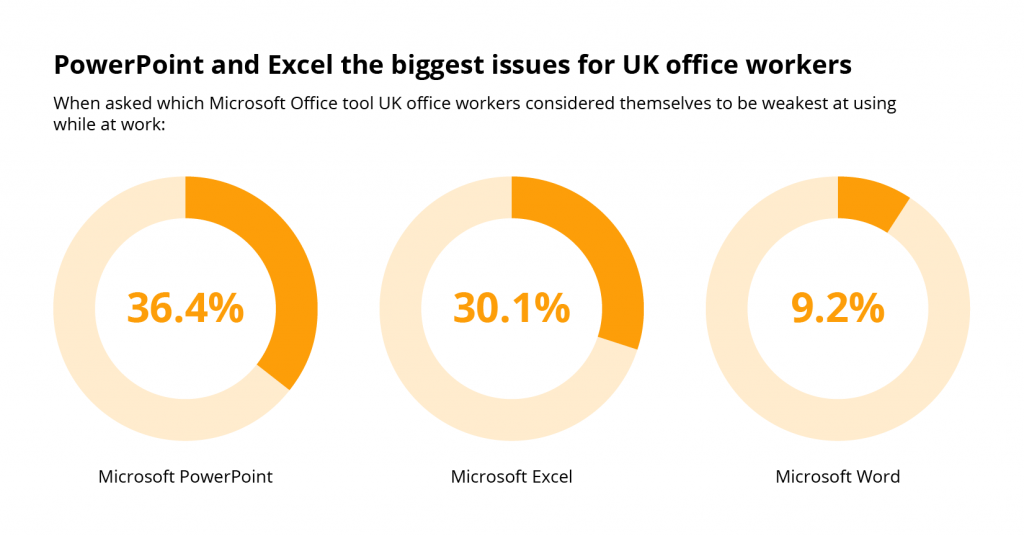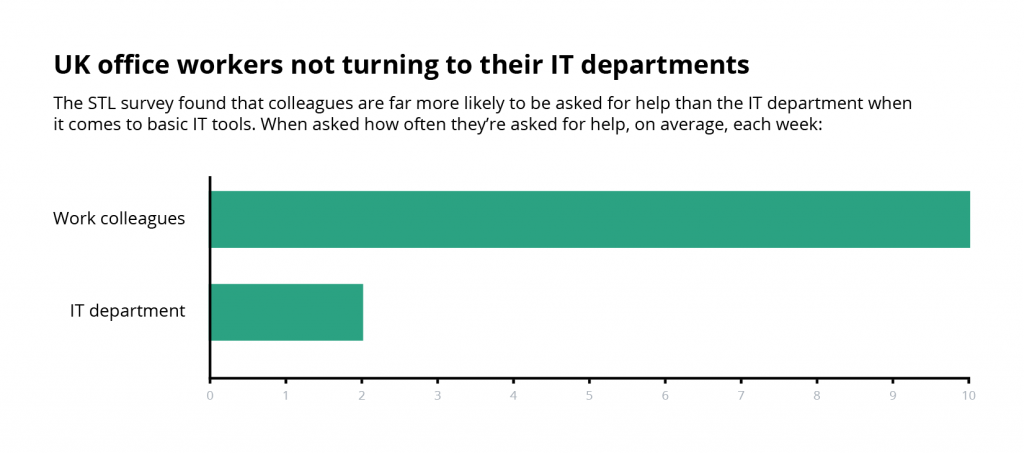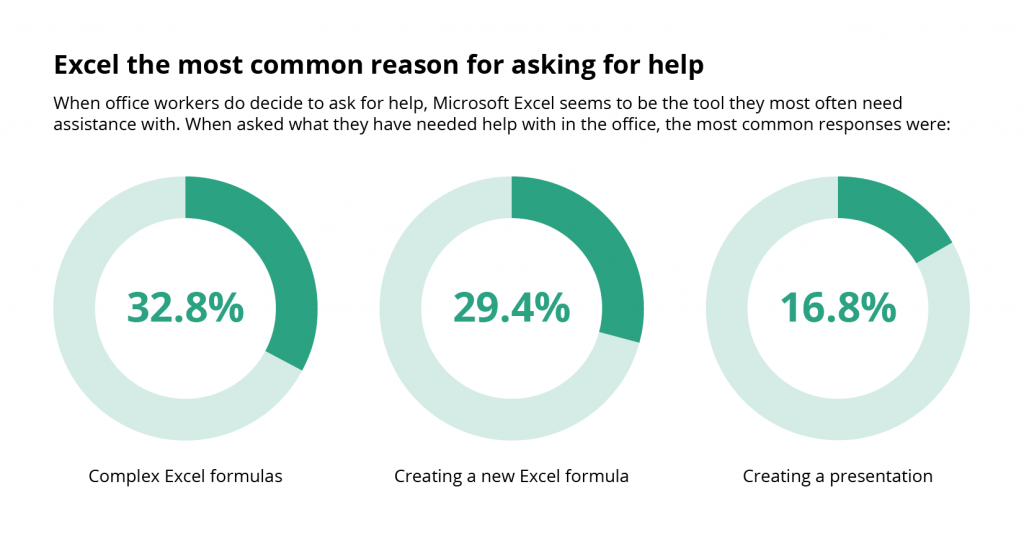Employees in the UK are struggling to deal with a major IT skills gap, with the average UK office worker spending more than half an hour a day struggling to figure out how to work their tech or IT systems.
For most office workers in the United Kingdom, dealing with things like spreadsheets, presentations and word documents are considered normal, everyday tasks.
Yet, a new national survey by STL has found that a significant number of employees are seriously struggling with their IT systems.
What our survey revealed
In a survey* of 2,000 UK office workers, STL found that more than a third of respondents believe their lack of IT skills prevent them from doing their job effectively.
Half of UK office workers admit to being unable to fully understand tools like Microsoft Excel, PowerPoint and Word, with spreadsheets and presentations cited as being the most problematic.

Astonishingly, office workers are losing over 10 hours per month struggling to operate their IT systems, meaning UK employees are losing over £1,600 per employee, per year, based on the average office worker salary.
With an estimated 10 million office workers in the United Kingdom, that means businesses are wasting a staggering £16 billion per year due to a basic IT skills gap.
Despite the clear gap in skills, our survey found that workers are reluctant to get help from their IT department.
42% of respondents said that embarrassment stops them asking for help, with many worrying that their query would be thought of as ‘basic’. Instead, many workers turn to colleagues:
For others, the Internet and even family and friends are a preferred option for getting assistance with basic IT tasks:
Excel frustration
When they do choose to ask for help, the most common source of frustration is Microsoft Excel:
A reluctance to admit to a gap in IT skills appears to be a common problem amongst UK employees.
With nearly one in five opting to ‘bluff’ their way through common tasks or questions from colleagues (including giving a colleague spreadsheet advice, hosting a meeting using documents and giving a PowerPoint presentation).
Employers can do more
Our research also found that office workers are aware of the IT skills gap, and that many feel that their employers need to improve their training to help address the problem.
A third of those polled directly blamed their employer for not offering them enough support in using computer applications, and more than half of UK office workers felt they would benefit from proper training in Microsoft Office.
Effective training would not only help to make office workers more productive and efficient, but 47% of respondents also felt it would improve their levels of motivation at work.
At STL we seek to provide an unrivalled value and quality service, enabled by our strong working culture. Our 500+ courses deliver learning solutions across leadership and management training and Microsoft Office applications (including Excel) .
We help our customers to address some of the most critical aspects of the real economy, by improving productivity and efficiency. We have instructor-led London training centres and also deliver across the UK, EEC/Abroad (95+ countries)
*Our data comes from an MRS-compliant, nationally representative survey of 2,000 UK office workers who regularly use a computer. The survey was carried out on behalf of STL in February 2020.





